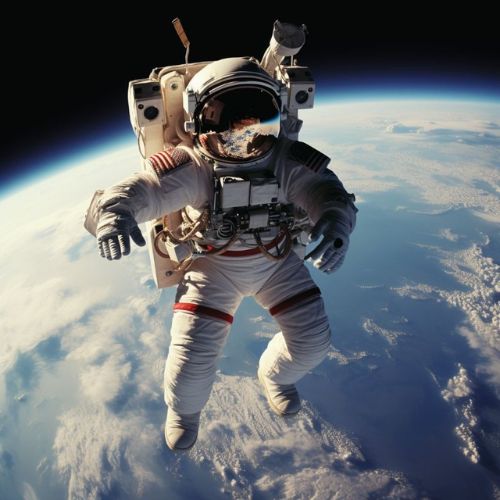Osteopenia in Space
When astronauts venture into space, their bones suffer. They weaken and become super prone to fractures, which scientists call osteopenia. To combat this problem caused by the lack of gravity, astronauts try taking calcium and vitamin D supplements, as well as engaging in exercise. Alas, these methods have failed to muster the desired results in shielding against osteopenia. That's why scientists are constantly on the lookout for new medicines that can make bones strong again after space travel.
In an exciting study published in Cell Stress & Chaperones, a team led by Yang from Xi'an Jiaotong University in China discovered something fascinating. They found that NMN could help rats regain their bone strength after being in a microgravity environment, similar to what happens in space.
What's intriguing is that NMN replenishes a molecule called NAD+ in the rats' bones, which decreases during microgravity. Additionally, NMN reduces malondialdehyde, a stress-related component in bones. So, it seems like NMN has the power to make bones stronger, restore NAD+ levels, and alleviate stress in the bones.
To investigate the impact of space on bones, the researchers conducted an experiment similar to NASA's approach. They suspended the rats by their tails, preventing their hind legs from touching the ground, mimicking the effects of zero gravity on their bones. This enabled them to observe how reduced activity affects bone strength, which they measured by examining mineral density.
The rats whose hind legs hung in the air for four weeks experienced significantly weaker bones. This indicated the onset of osteopenia and fragile bones. However, when these rats were given NMN injections in their bellies every three days, their bones became strong once again.
So, it appears that NMN can effectively prevent osteopenia during space travel.
To understand the mechanism behind NMN's action on bones, the researchers analyzed the levels of NAD+ in the bones. Rats in microgravity exhibited significantly lower NAD+ levels, but when they received NMN, the NAD+ levels increased. This demonstrates that NMN strengthens bones by boosting NAD+.
Stress is known to contribute to bone problems during space travel.
Therefore, the researchers also measured a stress indicator called malondialdehyde. After hanging the rats' legs for four weeks, the malondialdehyde levels doubled. However, when they administered NMN, it reduced stress in the bones.
This suggests that by elevating NAD+ levels, NMN assists proteins like sirtuins in reducing stress and maintaining strong bones.
NMN has the potential to preserve bone strength
In summary, based on these findings, NMN has the potential to preserve bone strength and prevent osteopenia in rats experiencing microgravity, similar to the conditions of space travel. Moreover, it restores NAD+ levels, which decrease during microgravity, and consequently lowers stress, ensuring the maintenance of robust bones.
Since NMN supplements have been proven safe, there is a possibility that astronauts could benefit from them during space travel. The next step would involve administering NMN to astronauts aboard the International Space Station and assessing their bone strength before and after their missions. This research will provide insights into whether NMN can effectively prevent osteopenia resulting from space travel.





